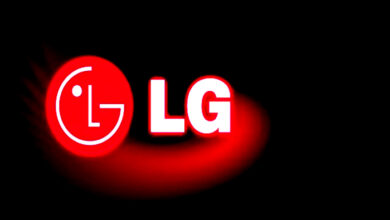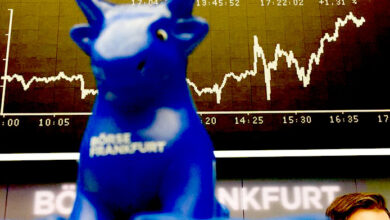European stock futures go down. ECB and bank earnings are in the spotlight.

On Monday, European stock markets were likely to open with small losses. This will be the start of a week in which the ECB is likely to raise interest rates again and Europe’s top investment banks will report their quarterly results.
At 02:00 ET (06:00 GMT), the DAX futures contract in Germany was down 0.5%, the CAC 40 futures contract in France was down 0.4%, and the FTSE 100 futures contract in the U.K. was down 0.4%.
European stock markets will have a bad start to the week because investors are worried about slowing growth in the region and because the European Central Bank is expected to tighten monetary policy in a big way to fight inflation.
Related: European stocks fall as a result of inflation fears and poor profit margins.
With inflation in the euro area at almost 10%, which is much higher than the central bank’s target of 2%, it seems likely that the ECB will raise rates by another 75 basis points on Thursday.
But data released on Friday showed that consumer confidence in the Eurozone stayed close to a record low in October. This shows that there is still a risk of a recession this winter as households struggle with a sharp rise in the cost of living.
The PMI numbers for October, which will be released later on Monday, will show if the euro area fell further into contraction territory at the end of the third quarter.
China’s GDP grew 3.9% year over year from July to September, according to official data released on Monday. This is faster than the 0.4% growth rate in the second quarter.
The data was supposed to be released on Oct. 18, but it was put off because of a big Communist Party Congress last week, which ended with Xi Jinping getting a third term as the party’s leader, which broke a rule.
This week, earnings from some of Europe’s best investment banks will also be important because they are often seen as a good indicator of how well businesses are doing in the region.
UBS (SIX:UBSG) on Tuesday, then Deutsche Bank (ETR:DBKGn) and Barclays (LON:BARC) on Wednesday. Credit Suisse (SIX:CSGN) will announce a major change, which is the most anticipated news.
Also on Monday, the Conservative Party in Britain will choose a new leader who will become the fifth prime minister in six years. After former PM Boris Johnson dropped out late Sunday, the front-runner is now former chancellor Rishi Sunak.
Oil prices went down on Monday after data showed that China, which buys the most crude oil in the world, kept its demand low in September because of its Zero-COVID policy.
Last month, China brought in 40.24 million tonnes of crude oil, which is about 9.79 million barrels per day, according to data that came out a week late on Monday. This was a little more than the 9.5 million barrels imported in August, but it was still less than the nearly 10 million barrels a day that were brought in a year ago.
Related: European Stock Futures Edge Higher; Overall Sentiment Remains Weak
By 2:00 ET, U.S. crude futures were down 1.1% to $84.13 a barrel, while the Brent contract was down 1% to $90.41.
Gold futures also went up 0.2% to $1,659.25/oz, while EUR/USD went down 0.1% to 0.9853.





